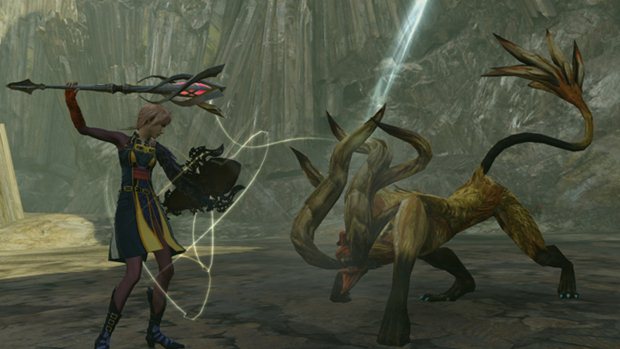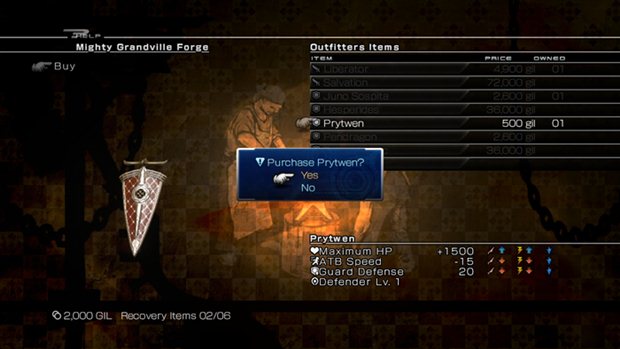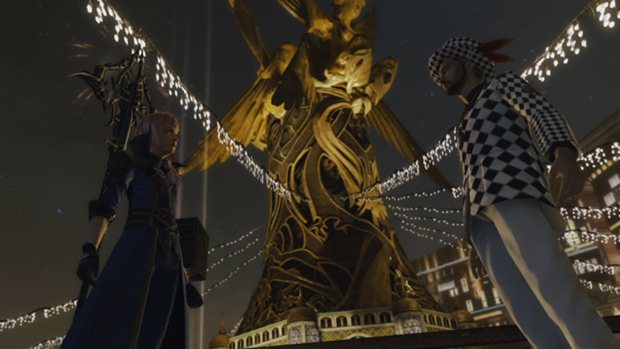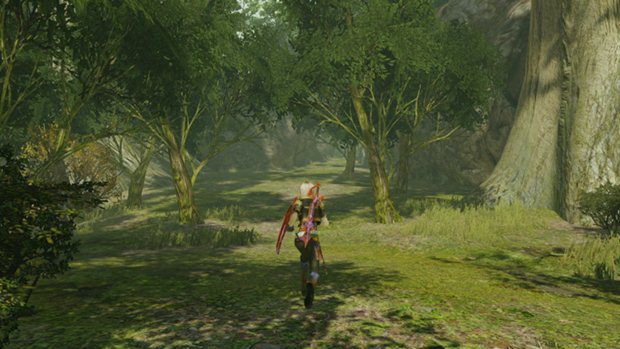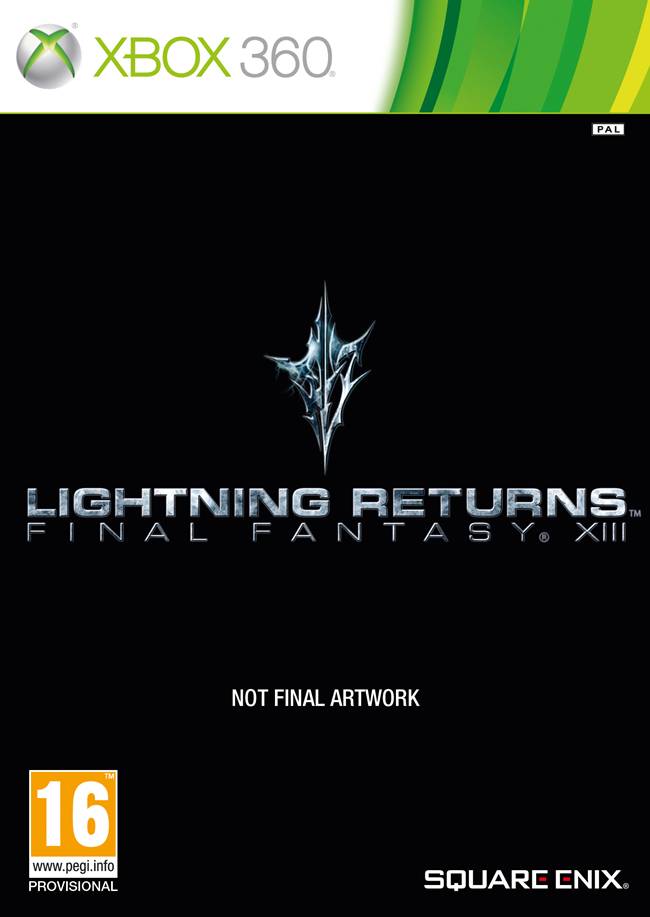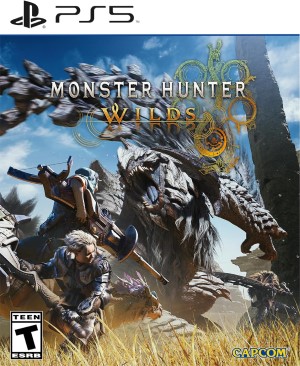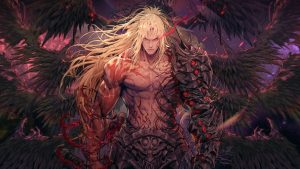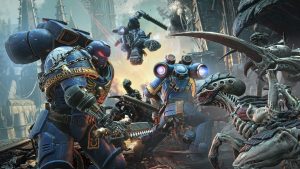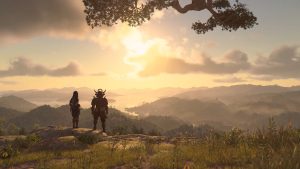
Final Fantasy is unique; there is nothing else quite like it. It’s been that way since its inception. Each game in the series is so different, each world so diverse, each system so mechanically distant, and each cast so distinct from the one that preceded it that it’s often hard to remember that they are all a part of the same franchise. It’s the little things that connect them: music, shared characters like Biggs, Wedge, and Cid, Moogles, Chocobos, a general sense of art and design. Despite all of the differences between the individual titles, these are constant, and they come together to form games that are unlike any other series in the medium. They feel like Final Fantasy. They could be nothing else.
And yet, despite all of these differences, the series has become something of a measuring stick for the medium, and fans and critics have spent years analyzing each individual title, trying to determine what each release means for the future of the series, the company that makes it, and the Japanese game industry itself. After each game, we think we finally have it figured out. We think we know where the developers plan to take the series and what each individual game means for the franchise and even Square itself.
History has shown us that we couldn’t be more wrong.
"Few would have predicted that Square would have followed VII and VIII’s gritty, steam punk style with a more traditional fantasy game like Final Fantasy IX, especially given the incredible popularity of the former titles."
Few would have predicted that Square would have followed VII and VIII’s gritty, steam punk style with a more traditional fantasy game like Final Fantasy IX, especially given the incredible popularity of the former titles. Fewer still could have predicted that Square would turn the series into an MMO and produce a direct sequel following the massive success of Final Fantasy X. And no one predicted that Final Fantasy XII, the most open single-player game in the series at the time of its release, would be followed by an incredibly beautiful hallway simulator that would go on to receive two sequels despite its divisive reception.
Yes, there’s no denying that Final Fantasy XIII was a controversial game. It was a beautiful title, no doubt, but that beauty came at the cost of series staples such as towns, side quests, and exploration. Part of this could be chalked up to the title’s protracted development and the technology behind it – Crystal Tools was clearly not created with large environments in mind – but the result is still the same. Playing previous games in the series made you feel as if you had been transported to another world. Playing Final Fantasy XIII felt as though you were being led by the hand down a hallway as you watched a beautiful, elaborate play. You could look, but you couldn’t touch.
Lightning Returns, however, is the polar opposite. The story is fairly simple: the world is dying. The Chaos, first unleashed five hundred years ago at the end of Final Fantasy XIII-2, has consumed nearly the entire world. Monsters are everywhere. No one ages, and no one is born. Humanity is trapped in a few small areas, waiting for the end. Lightning is selected as the Savior – a powerful figure, tasked with freeing mankind’s burdened souls so that they may be reborn in the new world.
"The world of Lightning Returns is enormous, and what a world it is. The attention to detail is often stunning. Everything in Lightning Returns operates in real time: shops open and close, characters move about the city, and collectibles and monsters change locations."
As you might imagine, you’ll spend most of your time traveling the world and helping people solve their problems. You’ll slay monsters, collect lost items, reunite old friends, ride Chocobos, explore ancient ruins and even solve a murder mystery or two before it’s all said and done, and the wide variety of quests helps keep things interesting, as does the ever-shrinking time limit that the game expects you to operate within. You’ll only have seven days to work with at the outset, but you can expand that number to thirteen by completing side quests and story missions. It’s a good thing, too, because you’ll need all the time you can get, especially if you want to see everything the world has to offer.
The world of Lightning Returns is enormous, and what a world it is. The attention to detail is often stunning. Everything in Lightning Returns operates in real time: shops open and close, characters move about the city, and collectibles and monsters change locations. Wait too long in one place and you might not be able to interact with something until the next day. On the other hand however, certain characters, quests, and areas only open late at night. It’s a fine balancing act, and the game pulls it off almost effortlessly. More importantly, however, the world itself really feels alive.
Characters will stop and eat at restaurants, gather around street performances, go on dates, stop to take in local tourist attractions, and even run from monsters. Of course, the world isn’t perfect, and you’ll occasionally have your suspension of disbelief stolen away when you pass a girl who complains that her date is late at four o’clock in the morning. These events are rare, however, and you’ll quickly forget about them as you watch a pair of tourists argue about the play they’re going to go see, or watch as a pair of Chocobo riders move across a plain to engage a monster that’s chasing a merchant.
"Staggering makes its return here, and the same rules apply: dealing enough damage to an enemy within a certain time period will leave it weakened and often defenseless, giving you an opportunity to go in for the kill."
Of course, Lightning can engage monsters, too, and like the world itself, combat is one of Lightning Returns’ strong points, though the system in place here bears little resemblance to the ones in Final Fantasy XIII and XIII-2. Those games took a hands-off approach to combat that saw you issuing general commands to your entire party, while Lightning Returns is almost an action RPG with Lightning mostly fighting solo against groups of enemies in real-time. Still, Lightning Returns does retain a few mechanics from previous games in the franchise, and things come together far better than they have any right to.
Staggering makes its return here, and the same rules apply: dealing enough damage to an enemy within a certain time period will leave it weakened and often defenseless, giving you an opportunity to go in for the kill. Now, however, you’ll have to defend yourself as well as attack. Crucially, defensive abilities draw from the same action bar as your offensive ones, meaning you’ll have to find a balance if you hope to stay alive. In addition, you’re limited to twelve abilities at a time, four for each of the three fully customizable Schemata you can switch between on the fly.
Even basic abilities like guarding and attacking take up a slot, so you’ll have to customize your Schemata to match the needs of the various situations you’ll find yourself in. Some enemies can be staggered with magic attacks and melee hits, while others are only vulnerable in certain areas, after certain attacks, or by perfectly timing a block. Positioning is key, as is knowledge of the enemy and your own abilities, and there’s a lot of strategy involved here. It’s easy to time casting a spell that causes Lightning to leap out of danger, for example, but it’s just as easy to mess up a perfect block and watch half of your health melt away, too.
"The Crystal Tools engine was not designed to support large environments, and it shows. While the key characters look as good as they ever have, many of the NPCs look like they were constructed out of stock models and their costumes are often assembled out of the vanity items you can add to Lightning’s Schemata."
Lightning only has access to one healing ability, which draws on EP, a resource that allows you to stop time, teleport, resurrect yourself, and more, and can only carry a few healing items at a time. If you die and cannot resurrect yourself, you can still continue playing, but at the cost of an hour of in-game time. As you can imagine, this penalty adds up quickly, and imbues a sense of urgency and importance into every battle. It’s rare for an RPG to put so much effort into making every decision matter, but Lightning Returns does it as a matter of course, and the game never feels unfair even at its most challenging.
Still, the game has flaws. The Crystal Tools engine was not designed to support large environments, and it shows. While the key characters look as good as they ever have, many of the NPCs look like they were constructed out of stock models and their costumes are often assembled out of the vanity items you can add to Lightning’s Schemata. Most of the environments, textures and animations look equally dated. All of this is mitigated by the sheer size and scope of the game world and by the fact that the battles themselves look fantastic, and while the game never looks too bad, it never looks too great, either.
The game’s story is equally hit and misses. While the side quests are interesting and generally well-realized, the story take itself a little too seriously for its own good, especially in a game in which you can dress your protagonist up as a cat, and much of the plot seems to be constructed by an obsessive need to bring back as many of the characters from previous games as possible. Sometimes, the reappearances make sense.
"It’s not perfect; no game ever is. But it’s unique. In many ways, it’s brilliant. In many others, it’s heavily flawed. But it still feels like Final Fantasy. It’s still special. And in this case, that’s enough."
For instance, it’s not surprising that Snow and Noel reappear, given that the former is the world’s last l’Cie and has played a major role in the previous two games, and that the latter is largely responsible for the shape that the world is in. Still, it is rather surprising that the fate of the world just so happens to depend on the fate of the major characters from the previous releases, even if they have little to no impact on the game’s overall plot.
So what, then, is the significance of Lightning Returns: Final Fantasy XIII? What does it say about the future of the Final Fantasy series? At this point, it’s anyone’s guess. It’s unlikely that the circumstances that led to its creation will ever occur again, and that leaves its impact on the series in doubt. Whatever it is, you certainly can’t accuse Square of resting on its laurels. It will, like its predecessors, be a divisive game. Some will be unable to forgive its presentation issues and plot failings, and the ending will no doubt irritate as many fans as it pleases.
And yet, the game stays true to itself and its predecessors. Final Fantasy XIII was always about ordinary people fighting to change their destiny, and Lightning Returns continues that trend. It is both a return and a swan song, not just for Lightning and her peers as they fight fate for the final time, but for Square the Final Fantasy XIII series, as it fights against its mistakes, fan backlash, and divisive reputation. It’s not perfect; no game ever is. But it’s unique. In many ways, it’s brilliant. In many others, it’s heavily flawed. But it still feels like Final Fantasy. It’s still special. And in this case, that’s enough.
This game was reviewed on the PlayStation 3.
Fantastic world-building. Lots of things to do. Side quests are well-realized. Excellent combat system. You can customize Schemata any way you like. Open world lets you tackle things how you want, when you want. Expertly balances the time limit and game mechanics to create tension without feeling unfair. Stays true to the characters and themes of the series. Good soundtrack.
Graphically inconsistent. Story takes itself too seriously for its own good. The return of some characters feels forced.









